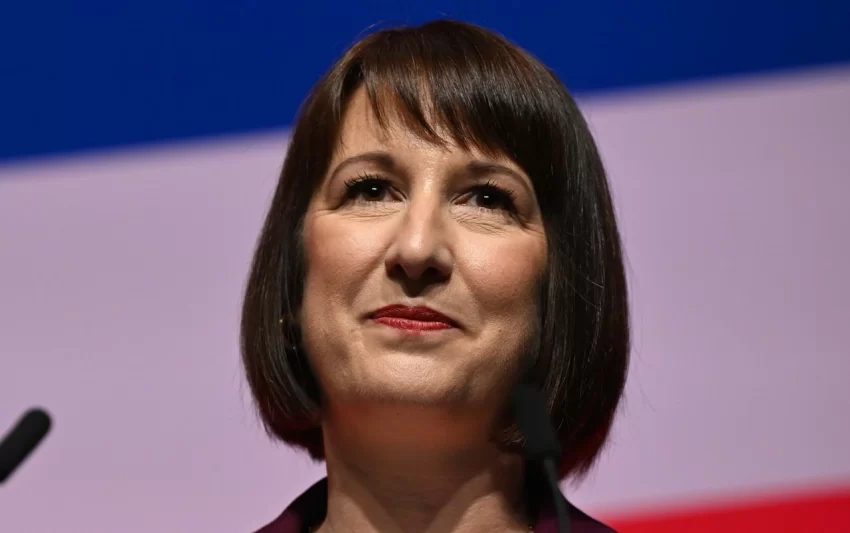Magdeburg attack fuels disinformation and mistrust in German leaders
Ahead of the February election, governing politicians are under fire over security failures while the far right is attempting to capitalize.
German leaders are coming under intense scrutiny for failing to prevent an attack on a Christmas market in Magdeburg last week after receiving several warnings about the suspect ― an anti-Islam activist who made little secret of his violent intentions in online posts.
Investigations into the security failures are likely to haunt Germany’s governing parties for weeks ahead of a snap election set for Feb. 23 and could well fuel a general sense of mistrust and insecurity among voters, particularly as far-right groups rush to capitalize on the attack by depicting mainstream leaders as unable to protect Germans.
In a bid to restore trust following the attack, German political leaders vowed to fully investigate the security lapses and enact new laws to strengthen police and bolster security after the tragedy that left five people dead.
“Federal authorities are turning over every stone,” said German Interior Minister Nancy Faeser of the Social Democratic Party (SPD).
But it’s far from clear that will reassure voters, particularly as revelations about security missteps continue to surface.
Germany’s Federal Criminal Police Office (BKA) was warned by regional authorities of the suspect’s possible violent intentions as early as 2015, according to a report by press agency dpa. Saudi Arabian authorities also warned German security officials of the alleged attacker in 2023. Investigations were then initiated, but the case remained “unspecific,” Holger Münch, the head of the BKA, told public television.

The suspect, however, gave repeated indications of his violent intentions in online posts. “I assure you 100% that revenge will come soon. Even if it costs me my life,” he is purported to have written on X last December in a now-deleted post. “I seriously expect to die this year,” another such post reads.
The atypical profile of the suspect — a 50-year-old refugee from Saudi Arabia who styled himself as a women’s rights activist, was reported to have sympathized with the far-right Alternative for Germany (AfD), and whom German authorities characterize as “Islamophobic”— may have predisposed authorities to overlook warning signs, experts say.
“In Germany, people think very strongly in established, rigid categories of right-wing extremist, left-wing extremist, Islamist,” said Peter Neumann, a terrorist and security expert at King’s College London, in an interview with Spiegel. “A second problem is that it has long been assumed that mental illness is by and large irrelevant in the fight against terrorism.”
Because the suspect’s unusual profile defies easy narratives, the attack has also become a rich breeding ground for speculation and conspiracy theories, even beyond Germany’s domestic debate, with some casting doubt on the government’s early accounts of the suspect’s political beliefs.
“Legacy media lies again,” X boss Elon Musk wrote over the weekend while reposting a collage of headlines quoting Interior Minister Faeser referring to the attacker as “Islamophobic.” On Friday, shortly before the attack, Musk endorsed the AfD, calling it the only party that could “save Germany.”
Germany’s economy minister and chancellor candidate for the Greens, Robert Habeck, seemed to push back against Musk without mentioning the tech mogul by name.

“Don’t believe what propagandists on the net want to tell you; their lies are faster than the truth,” Habeck said over the weekend. “This is especially true now, before the election. Mistrust is being stirred up with power. The power of the big social media platforms and, increasingly, with big money.”
Aside from rampant speculation and disinformation, a more common message being pushed by European radical-right figures is that the alleged attacker’s motives and beliefs are largely beside the point. All that is truly relevant, they argue, is that he’s an immigrant.
It remains unclear whether the attack will ultimately benefit the AfD, which is now polling in second place behind Germany’s conservative alliance, given the attacker’s apparent sympathy with the party. Previous attacks by Islamists — including a knife attack by an Islamist refugee suspect in the western city of Solingen last August — appeared to boost the party in the polls.
Despite the atypical profile of the Magdeburg attack suspect, the AfD clearly intends to use the incident to double down on its anti-immigration message — and to attack German mainstream politicians on the issue of domestic security.
AfD members and leaders were set to gather for a rally in Magdeburg late Monday. Among the party leaders expected to speak was Alice Weidel, the party’s chancellor candidate. Weidel was clear about her main message ahead of the rally.
“The discussion about new security laws must not distract from the fact that #Magdeburg would not have been possible without uncontrolled immigration,” Weidel wrote on X on Monday. “The state must protect its citizens through a restrictive migration policy and consistent deportations!”
What's Your Reaction?

















































